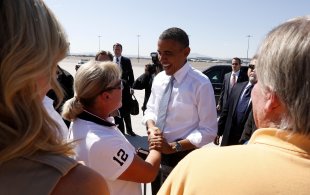
We asked you to tell us your stories of how you got your break in these tough circumstances and what advice you'd give to others still searching.
Here are your stories which include war, luck, determination and realism and at the bottom is another chance to tell us how you did it for another piece we'll publish as the series "Young and Jobless" continues.
'Do not get discouraged by failure and keep trying'
I was interviewed for around 10 of the many positions I had applied for. But I think when you fail to be shortlisted for roles, it does make you question your capabilities and skills.
There were also lots of obstacles I had to face. My home country - Ivory Coast - was going through a civil war and so I would be being interviewed over Skype while there were bomb blasts going off in the background. My priority was finding a good job while caring for my daughter. For me it became an issue of survival.
Don't just look for paid roles - volunteer or intern in order to get an insight into a professional environment and structure your CV so that it highlights your accomplishments and talents.
Do not get discouraged by failure and keep trying. Learn from your unsuccessful attempts.
'Have the courage to stand out, and stand up for yourself'
Please turn on JavaScript. Media requires JavaScript to play.
'Keep on trying and if you have to settle for an internship, do it to gain experience'
After university I sent out a bunch of applications and dropped off my resume at offices all over Nairobi. I also did a lot of networking.
Although Kenya has a high rate of unemployment, I chose not to give up.
I bumped into my current employer one day and handed him a copy of my curriculum vitae on the off-chance he needed somebody. A day later he called me. I was first an assignment research assistant but am now working in technical support.
This is a small start-up company but it's giving me the experience I need.
I would say keep on trying and even if you have to settle for an internship, do it so that you at least gain experience.
'Find a strategy that emphasises how interesting and unique your background is'
After a long time spent in academia working on a PhD in philosophy and teaching, I changed direction completely and enrolled in a one-year masters programme at a French business school.
The change turned out to be radical as I have now just started working at a management and strategy consulting firm.
But I had entered the recruiting process many months before my first interview. I met people who worked in the industry at the companies I wanted to work at, friends of friends and alumni from the various international universities I had attended.
That helped me to feel comfortable entering the complicated and arduous process of applying and interviewing.
My advice is to find a strategy that emphasises how interesting and unique your background is.
'The job you settled for could be the stepping stone to achieving your dream job'
After studying in the UK, I hoped to enter the field of foreign affairs and diplomacy but then realised that I had no idea about how to get into that line of work in Malaysia.
I still hope to work in foreign affairs but I have come to terms with the fact that not everybody gets their dream job immediately after graduating. My current job teaches me how to track and analyse economic trends so I'm hoping that will help me in the future.
My advice to those looking for a job - sometimes you just need to settle, but never forget your dream.
The job you settled for could be the stepping stone to achieving your dream job. That hope is what forces me to wake up each morning to go to work.
'Be stubborn, be determined, be thorough'
After graduation, I spent nine months waitressing until I found a part-time internship opportunity via a family friend contact. I moved to take up the position at the drop of a hat.
I applied all over the world stating I'd be happy to relocate. Many companies never responded despite my follow-up phonecalls and emails.
But I now work in a small team of analysts conducting social media analysis and drafting reports which focus on the Western Africa region.
Persistence is key. Be stubborn, be determined, be thorough. Apply to positions you may not be directly interested in.
As a young jobseeker you are full of so much potential, don't let yourself be lost among the discouraged!
'A willingness to volunteer is also vital as it illustrates that you care about more than just yourself'
Getting a first job as a trainee solicitor was the hardest challenge I ever faced.
I have emerged from the process a stronger, tougher and better person, having learned vital skills to survive in both a tough profession and economic world.
To cross the line, I had to show dedication to the legal profession. This I did through working, unpaid and funding my own expenses, at nine firms every holiday. I needed teamwork and leadership skills, which I acquired through getting involved in university activities, and experience in the workplace which I got by working in a supermarket and a local restaurant.
A willingness to volunteer is also vital as it illustrates that you care about more than just yourself.
Also crucial is business acumen. It is simple to get, given how easy it is to access information online and via television programmes. Taking notes of the key points and issues gives you enough to have an opinion and so score points at interview.
'Perseverance is key'
Immediately after leaving university I was lucky to land a seven-month unpaid internship at the Oxfam campaigns office in Manchester in the UK.
However, my dream was to work for an non-government organisation in Peru and so I decided the only way to launch my career was to study for a masters in international development.
Finding my first job wasn't as stressful as I'd imagined. In fact, my first application landed me my dream job. I worked extremely hard for my interviews and here I am today in a small town in northern Peru using both of my degrees.
I believe that by gaining as much relevant experience as possible during and after university and being willing to start at the bottom have paid off. It really made the quest for my first (and dream) job relatively pain-free.
Use any contacts you might have in your area of work who can help you source job vacancies and just apply for everything you can - perseverance is key!
'Be willing to accept new challenges and risks so you can discover just how far you can really go'
I started working when I was still in college in the US.
Unfortunately things didn't go the way I was planning and due to the economic crisis, investment firms started laying off foreigners so my chances of getting hired by one of them was almost zero.
I decided to go back to Azerbaijan where I went through several exams and interviews before I finally got my first full-time job at Pasha Bank as a treasury controller.
I believe achievements don't come with strength but with perseverance. The traits which most successful people have in common are perseverance, persistence and determination.
The key to success is being able to develop these characteristics, stay passionate about your ambitions and be able to take a risk when necessary.
If you would like to get your dream job you need to persistently improve yourself, be willing to accept new challenges and risks so you can discover just how far you can really go.
'Keep studying even if you have to work at the same time'
I am an Indian who was educated in Bahrain and finished my masters in Australia. I am currently working as a marketing specialist for Techno Blue, which represents Samsung in the country.
I was unemployed for nine months and was finally ready to call it quits and return to India when I got an interview call from the company for a role in logistics.
I went along but the chief executive officer refused to employ me. He told me that he hated to see a person like me stuck behind a desk and instead gave me the marketing role. He was aware I did not have much experience but guaranteed full support and mentoring. I said yes immediately.
Though I found it extremely hard to find a decent job in Bahrain, I did not lose hope. Bahrain is home to me, and although I am not a Bahraini passport holder I love this tiny island with a certain passion.
Bahrain was also going through a tough year with all the protests taking place as part of the Middle East "revolution". Trade was bad and businesses were shutting down everywhere. But I kept at it.
I would advise other jobseekers to keep studying even if you have to work at the same time.
'Seize every chance going and step out of your comfort zones'
I'm working as a sales assistant in a furniture company - it's a job I started a few months ago.
My sister worked at the same company and when she decided to leave, she told me about the vacancy. She helped me send my curriculum vitae to the human resources department. But when I had the interview the boss was impressed with my English language skills - so it was a mixture of luck and talent.
At university I studied import-export business administration but I'm not really using my specialism much. I do like my job now as sometimes I have the chance to meet new customers and learn how to deal with them, solve problems and do the best I can. But I am still studying as I want to know more about foreign trade.
I would say seize every chance going and step out of your comfort zones.
Send your pictures and videos to yourpics@bbc.co.uk or text them to 61124 (UK) or +44 7624 800 100 (International). If you have a large file you can upload here.
Read the terms and conditions
















